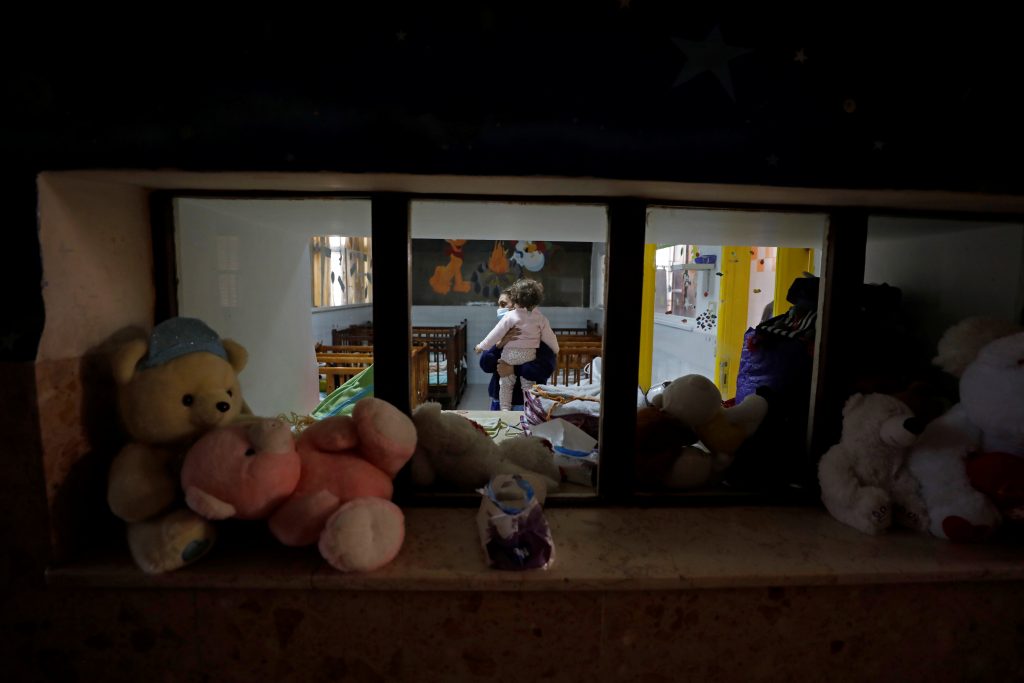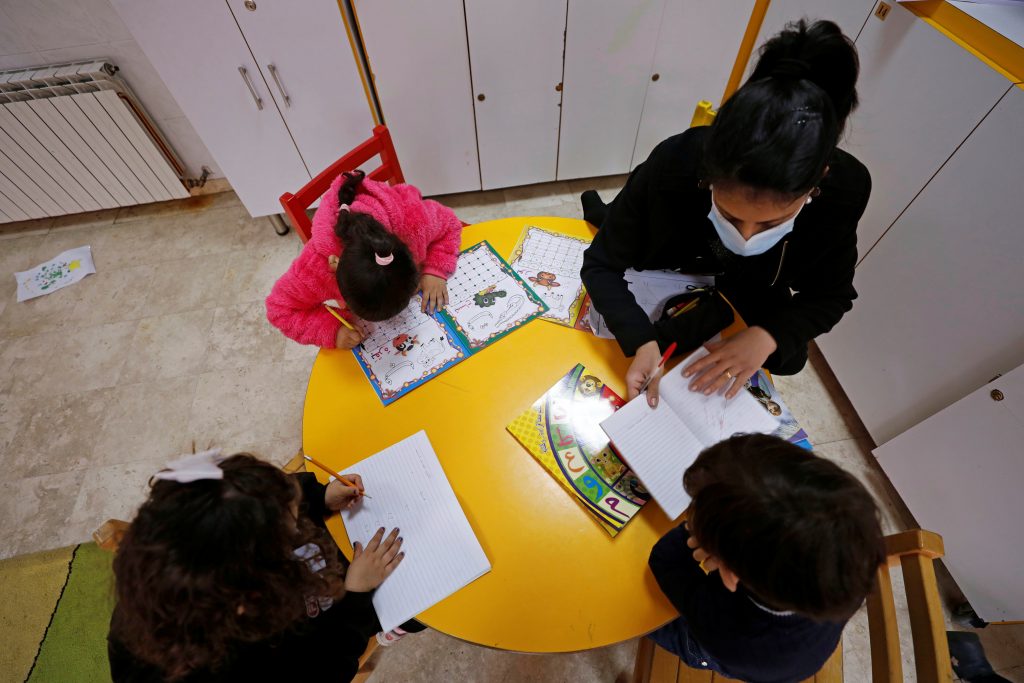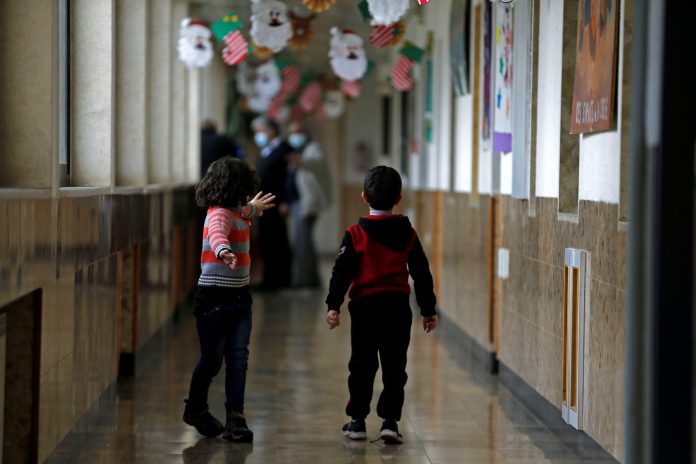Walk out of Bethlehem’s Church of the Nativity, across Manger Square and along Star Street and you come to a part of town where few pilgrims venture.
Behind a discreet plaque saying ‘Crèche’ is a children’s home – the only one that many illegitimate and abandoned children brought up there have ever known.
Run by Catholic nuns from the Daughters of Charity of St Vincent de Paul and Palestinian staff, it is a refuge for around 50 children, including those born out of wedlock, at risk of violence and even rescued from garbage bins.
There are children’s refuges all over the world, all dealing with similar issues.
But the Crèche bears the emotional weight of being in the traditional birthplace of Jesus, where the focus of the Christian world turns once a year to a story from Bethlehem that celebrates birth, family and hope.
Although a Christian institution, the children are raised as Muslim according to local law, unless the staff know the religion of the family that gave them up.
In 95 percent of cases Iskandar Andon, the social worker who oversees the children’s welfare, gets advance warning of a child conceived out of wedlock or from an incestuous relationship, but sometimes the first he knows is when he gets a call from the police that a baby has been found abandoned.
“For me as a social worker that lives with these children on a daily basis, I have the honour to be responsible for them, or to be part of their lives,” Andon, 52, told Reuters.
But he does not underplay the emotional difficulties. Relatives may be violent, or drug addicts, or the children and mothers at risk from honor killings.
“It involves an ethical and moral responsibility, a professional responsibility,” he said.

Founded at the turn of the 19th century, the institution’s echoing halls are a home from birth until the age of five.
But the Crèche is short of money – especially this year – amid donor fatigue and the coronavirus which struck Bethlehem first in the Palestinian Territories, just before Easter.
The pandemic cut the number of visitors who could bring aid or cheer to the children, and forced Bethlehem into lockdown that devastated its tourist-reliant economy.
The Crèche’s quiet charitable work has won it respect and recognition, however, including a visit in January by Palestinian Prime Minister Mohammad Shtayyeh, who called it an “utter manifestation of humanity.”
Some of the staff grew up in the home and, knowing the hardships the children will face in later life, came back to help others like them.
“I worked in various jobs, but in the end I decided to work in this institute for two reasons. To have a job and to build relationships, because I understand the nature of the kids,” said Mariam Ayyesh, a 39-year-old teacher who now works alongside the nanny who raised her.
Ayyesh has never met her parents and has no interest in finding them or knowing who they are.
“When you grow up, at school graduations, and at university graduations, you see everyone around you, it is a bit difficult … But in the end, if the child gets an education, and if he was brought up well, these things all help,” she said.
Most years volunteers dress up as Santa Claus to bring some festive cheer, and teddy bears are piled up around the Christmas tree. But this year there are fewer decorations and fewer visitors.
However, there was at least one happy ending, a few days before Christmas.

One of the children who was born out of wedlock is starting a new life after her parents married and set up home together – albeit far from their own home town to avoid scrutiny.
“At least today we started on a solid foundation that we can build a solid house upon, that can provide this child with support and protection,” Andon told Reuters, as he sat in the garden with models of reindeer and Santa Claus around him.
“We were very happy that this girl started with us,” he said. “And this is similar to the story of the child that was born, (at) Christmas 2020 years ago, in a house with difficult conditions with a father and mother that didn’t know where best to be, under hard conditions. And we saw later how this turned out.”









